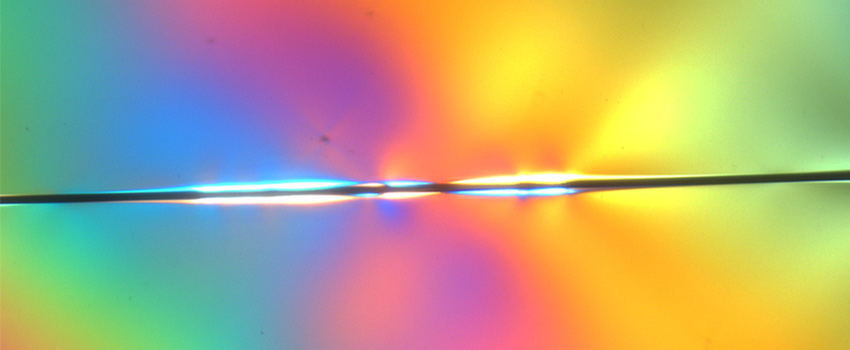
Overview
Leveraging excellence in nanoscale and molecular engineering and science, UW ChemE researchers design a broad range of advanced materials — from biocompatible coatings to plasmonic nanoparticles to electronic polymers — for applications in medicine, energy, and beyond. Our investigators are renowned for their expertise in biomaterials, colloids, polymers, and surface chemistry, and are pioneering methods to guide assembly, engineer defects and manipulate order over broad length scales to optimize material properties.
Research topics
- Biocompatible materials
- Bio-inspired materials
- Surfaces and interfaces
- Transport properties
- Drug delivery
- Nanostructured materials
- Quantum materials
- Defect engineering
- Luminescent and plasmonic materials
- Hybrid and hierarchical materials
- Directed assembly
Featured research clusters
Surface engineering
Faculty: Berg, Bergsman, Overney, Posner, Ratner, Schwartz
UW ChemE researchers use advanced synthetic routes to control surface chemistry and structure at molecular and nanometer length scales. We are also recognized as experts in the molecular analysis of surfaces with ex-situ and in-situ probing. Applications of designed surfaces include water purification, biomedical devices, adhesives, catalysis, electronic devices and many others.
Biomaterials
Faculty: Baneyx, Beck, DeForest, Nance, Posner, Pozzo, Ratner
We design biological and bio-inspired materials for biomedical implants, nanomedicines, medical diagnostics, and chemical sensors, as well as for synthesizing hybrid organic–inorganic materials. We integrate molecular simulations, data sciences, advanced microscopy and scattering tools to gain insight into these complex systems.
Colloidal, polymeric and nanomaterials
Faculty: Berg, Holmberg, Hillhouse, Jenekhe, Posner, Pozzo, Sherman
Fundamental understanding of interactions at molecular, nano and colloidal scales is key to achieving control over properties that govern the real-world behavior of dispersions and polymers. ChemE researchers have literally written the book on the rules for controlling soft matter systems
Campus opportunities
- Molecular Engineering and Sciences Institute
MolES serves as a physical incubator and an intellectual accelerator for translational molecular-level research in clean tech and biotech. It houses the Molecular Analysis Facility and NESAC/BIO, a surface analysis instrumentation and research facility for biomedical research. - Institute for Nano-Engineered Systems
NanoES supports research in the design, fabrication, and integration of scalable nano-engineered devices and systems in information processing, energy, health, and interconnected life. It houses the Washington Nanofabrication Facility. - The Center for the Science of Synthesis Across Scales
A DOE Energy Frontier Research Center, CSSAS aims to define the rules that govern how molecular-scale building blocks assemble into ordered structures. - Molecular Engineering Materials Center
MEM·C coordinates research efforts among two colleges and five departments across UW’s campus and Pacific Northwest National Laboratory (PNNL) to address major trans-disciplinary challenges in materials research.
